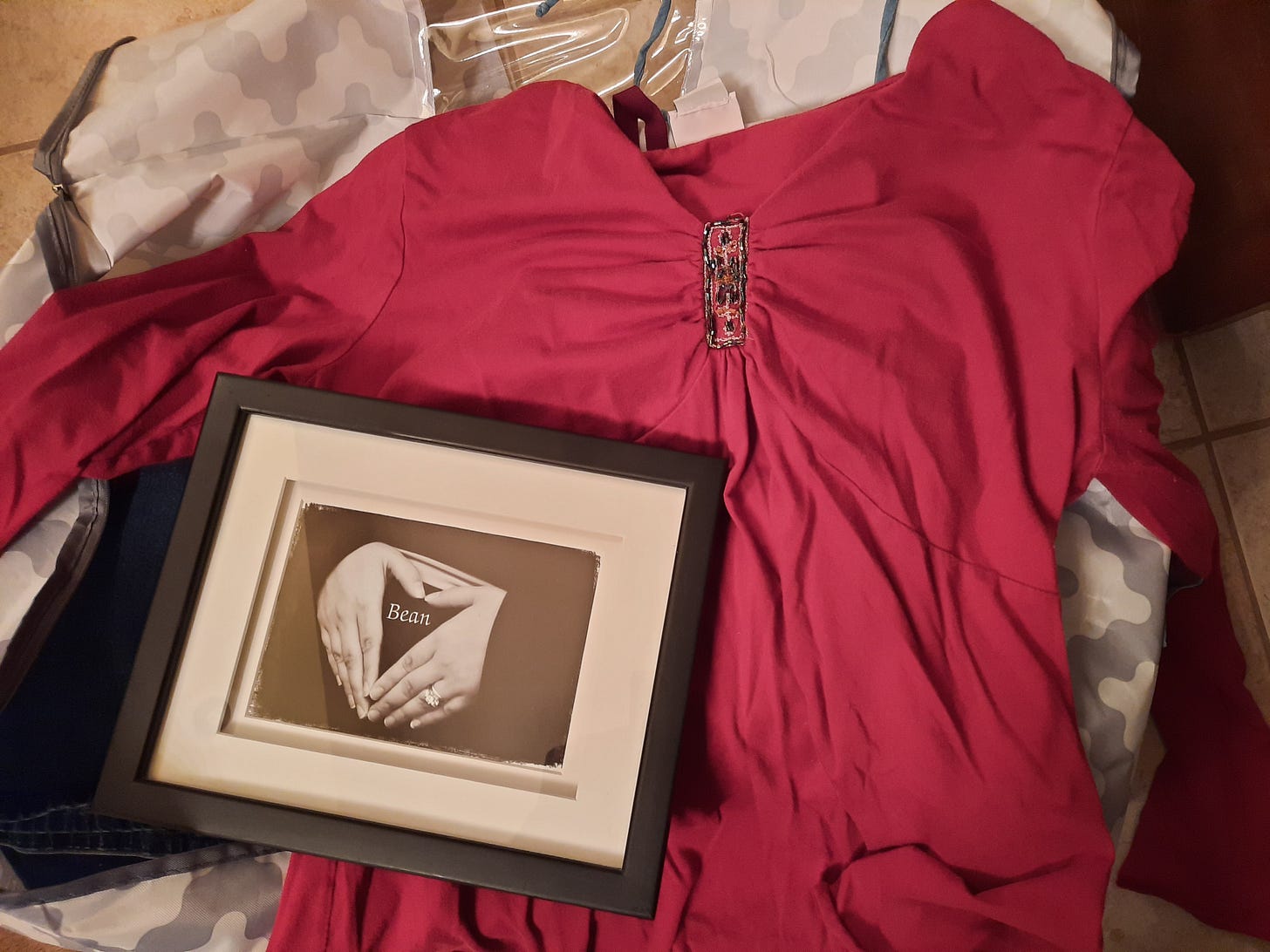My scars hold both memory and story.
The wound is the gift: A short reflection from childbirth to hysterectomy

My focus this month is on the body. One of the reasons I wanted to share with you some of my writings on female anatomy is that the last five years have been an intense period of growth in my life. Both complex and acute trauma truncated my ability to be “in my body:” to recognize its signals for basic needs, like hunger, thirst, or sleep. Driven as I’ve been for the last forty years, it took almost losing my life to passive suicidality before I learned how to listen to what stories my body was telling me. And the stories it wanted to tell through me. That’s my personal version of embodiment, and here is the first flash piece that relates to my uterus—a life-giving part that housed and grew humans but then was removed and became medical waste.
The scalpel severs my uterus, though I am numb. I sense pressure without pain, but my emotions are terror, panic. I have lived with this part in my body for over thirty years. Today it unfolds as a sudden, turbulent squall—destructive, chaotic. Sarah is ripped from me, cloaked in vernix and blood. She wails. I do not.
My flesh has been broken for her, no longer intact but fractions fragmented, splintered.
This is a libation of blood and water, extracted in streams seeping from the gaping hole, exposed skin, a ruptured organ. A river of life, this womb, sheds an outpouring of grace, of catharsis, of anointing.
I don’t speak of the violation, because I need to return to stasis. Time is urgent. Sarah’s life is at stake, not mine. There is no room for my body or its cries or its secrets, so I ignore the signals of desperation it sends, this pining for tenderness.
Later, my scar becomes fissured soil on dry earth, shriveled and inert. When rain nourishes parched land, the crack is sealed, yet traces of its tracks remain. The wound is the gift. My scar holds memory and story. Without it, no love exists, no sacrifice. Nothing that is closed forever can be reopened.
When I approach age forty, I decide a hysterectomy is the only way out of my psychological madness. Hysteria, after all, originates from the Greek hystera, meaning uterus. Freud’s diagnosis: the wandering womb of fanatical emotions, a conversion disorder. I felt that way after giving birth to five children in less than ten years. I’d morphed into a frenetic maniac, hyperventilating at the mere idea of pregnancy.
My body said no more.
As the surgery ends, I perceive the vacancy—the presence of an absence, or the absence of a presence, I’m not sure which—where this segment of me, once a full quiver, has vanished. I am not barren. I am sterile. The entrails that enveloped my womb have not yet assimilated to this internal wilderness, this silent cavern.
The prick on my heart is grief, I know, and I choke on my tears. Why do I mourn this loss? My uterus was telling me something for many years—to let go, to stop forcing it to expand and contract. It was weary and worn, and I listened, at long last.
Now it is medical waste, mixed with other human refuse. I can’t accept the carelessness of this ending, the fact I never said goodbye, never thanked my womb for its holy housing of my children, never apologized for my negligence in appreciating its power. But now, the violence of this abrupt conclusion renders me sorrowful yet relieved.
Fertility was once a gift, and now an end to fertility is a gift, too.
Your financial contribution helps supplement our family’s expenses and offset the costs of ongoing medical care for our daughter Sarah that requires 20 hours of unpaid caregiving on my part. I want you to know how much your support means and how it helps our family.





Wow! Powerful wordsmithing. The strength of some words and the juxtaposition next to soft words. Words such as fragmented, splintered, violation with "this pining of tenderness," closely following the harsh words. Powerful, beautiful, poignant writing, Jeannie. And a standout sentence that pulls it all together, "A river of life, this womb, sheds an outpouring of grace, of catharsis, of anointing." Wow, wow, wow.
Jeannie, I found this line particularly profound: "The wound is the gift. My scar holds memory and story. Without it, no love exists, no sacrifice." This is such a powerful reframe of pain and trauma. It’s easy to see scars as just marks of damage, but you highlight them as markers of life, love, and sacrifice. It shifts the perspective from something to be ashamed of to something to be honored. Each scar, each “fissured soil on dry earth,” tells a tale of resilience and survival. It reminds me that our vulnerabilities and imperfections are what make us human and connect us to others.
This was a beautiful, heartfelt, inspiring piece. Thank you for sharing with us.